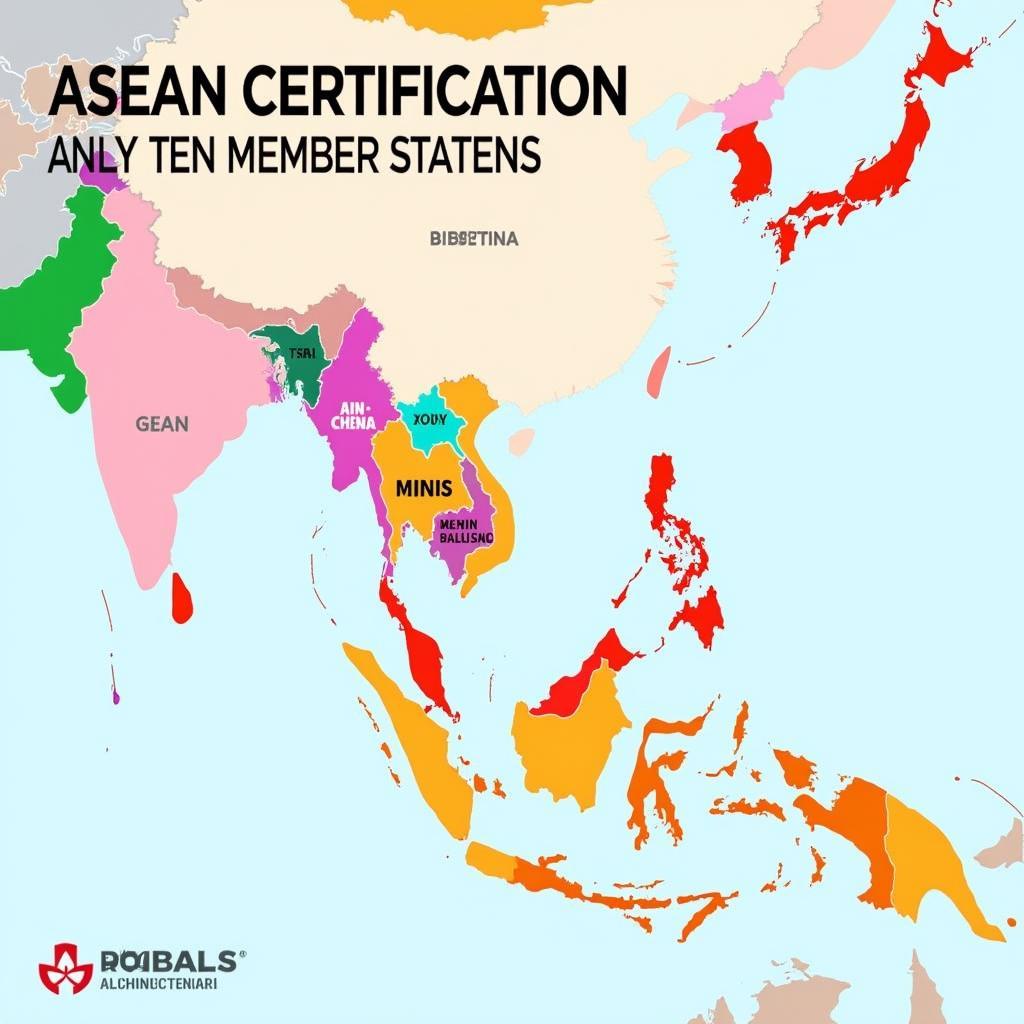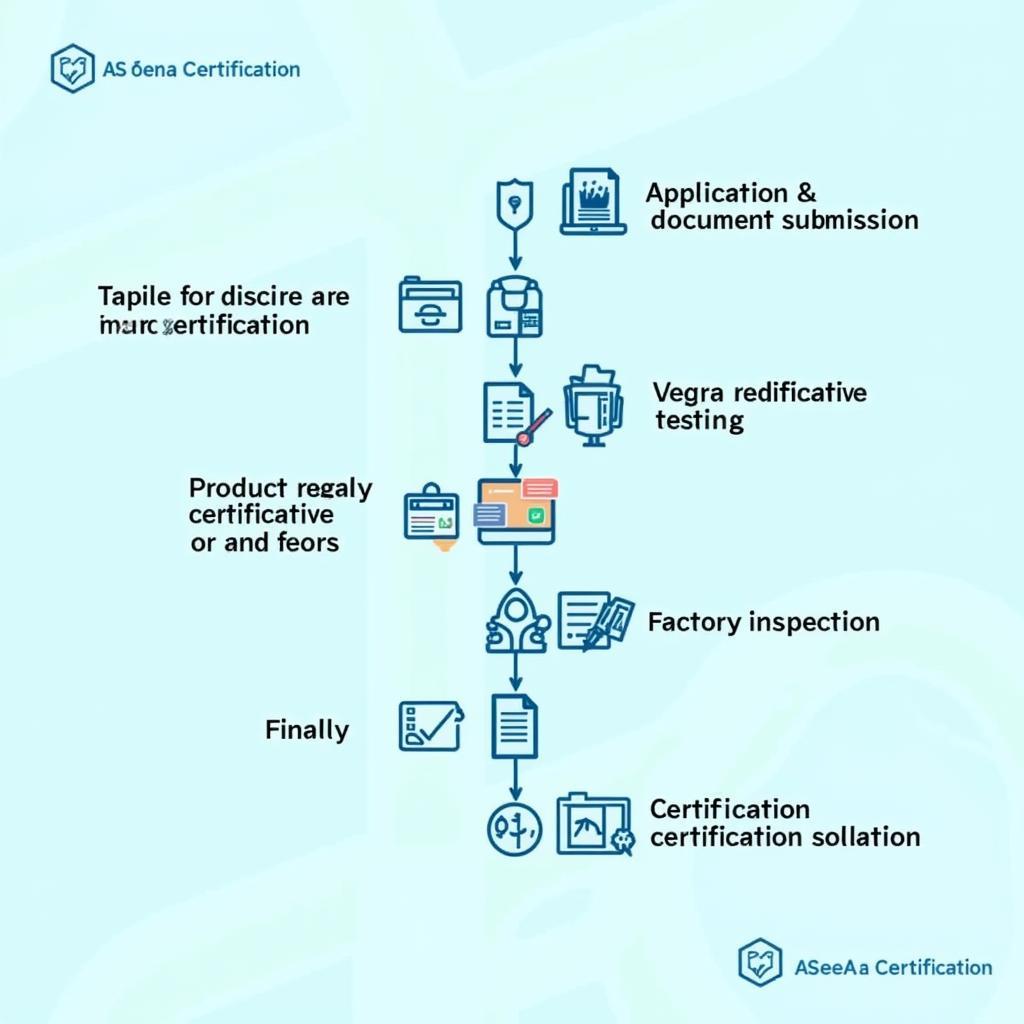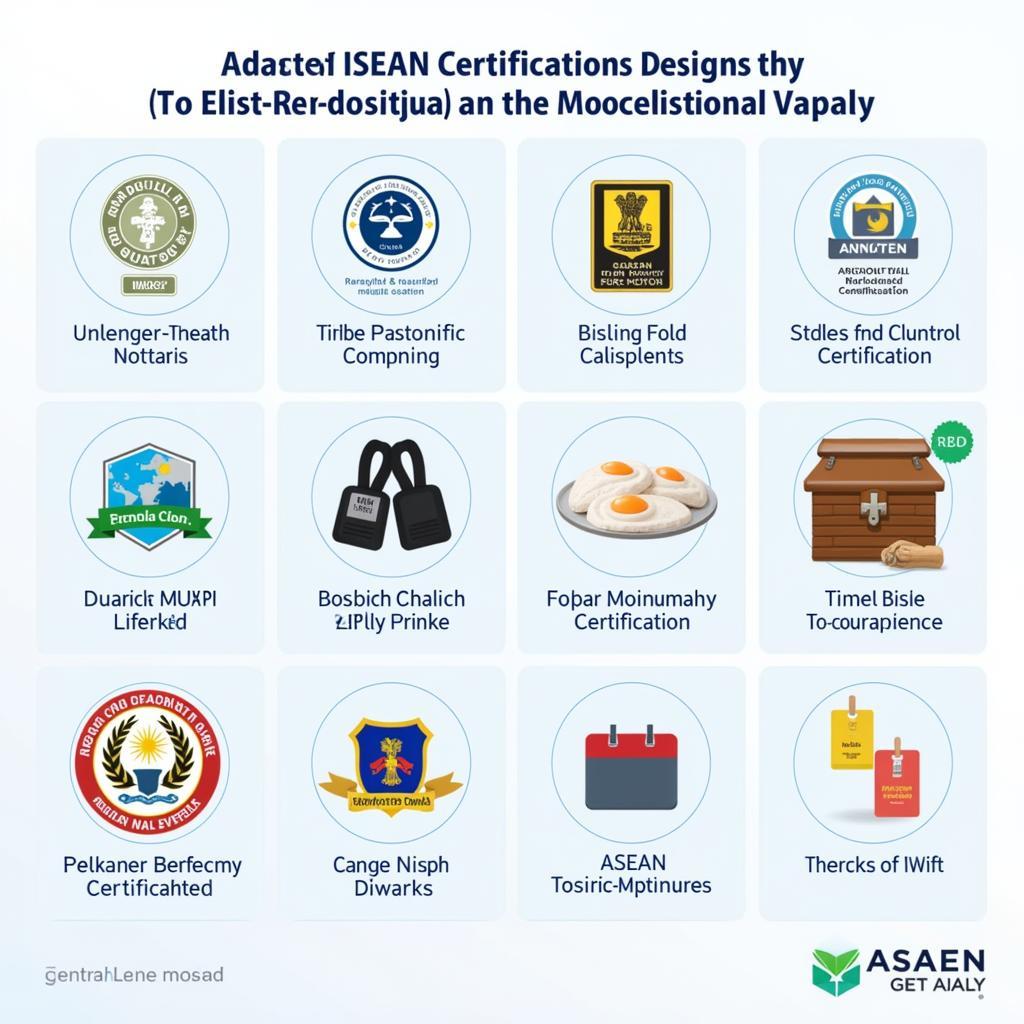Understanding ASEAN certification requirements is essential for businesses looking to tap into the vast potential of the Southeast Asian market. This comprehensive guide will provide you with all the information you need to navigate the intricacies of ASEAN certifications, ensuring a smooth and successful entry into the region.
 Map of ASEAN countries with certification marks
Map of ASEAN countries with certification marks
What are ASEAN Certification Requirements?
ASEAN certification requirements are technical regulations and standards that products must meet to be legally traded within the ASEAN Economic Community (AEC). These requirements aim to:
- Facilitate free trade: By harmonizing standards, ASEAN aims to reduce technical barriers to trade and promote the free flow of goods within the region.
- Ensure consumer safety: Certifications guarantee that products meet specific safety and quality standards, protecting consumers from substandard or hazardous goods.
- Enhance competitiveness: Adhering to regional standards enhances the competitiveness of ASEAN products in both domestic and international markets.
Key ASEAN Certification Schemes
The ASEAN region has implemented several key certification schemes across various sectors. These include:
- ACCS (ASEAN Cosmetic Directive): Regulates the safety and labeling of cosmetic products.
- ACMF (ASEAN Common Mutual Recognition Arrangement for Medical Devices): Facilitates the free movement of medical devices within ASEAN.
- ATISMRA (ASEAN Toy Safety Mutual Recognition Arrangement): Establishes safety standards for toys sold in ASEAN countries.
- ASEAN MRA on Electrical and Electronic Equipment (EEE): Harmonizes safety requirements for electrical and electronic products.
 Flowchart illustrating the ASEAN certification process
Flowchart illustrating the ASEAN certification process
Benefits of Obtaining ASEAN Certification
Obtaining ASEAN certification offers numerous advantages for businesses, including:
- Access to a Larger Market: Certification grants access to a market of over 650 million consumers.
- Reduced Costs: Harmonized standards minimize the need for multiple testing and certification procedures, reducing costs and time-to-market.
- Enhanced Brand Reputation: Certification serves as a testament to a product’s quality and safety, boosting brand reputation and consumer trust.
- Competitive Advantage: Certified products gain a competitive edge, making them more appealing to both buyers and consumers.
Navigating the Certification Process
While specific requirements vary depending on the product and certification scheme, the general process typically involves:
- Identify the relevant certification scheme: Determine which scheme applies to your product category.
- Contact a certification body: Engage an accredited certification body within an ASEAN member state.
- Submit application and documentation: Provide all necessary documentation, including product information, test reports, and quality management system details.
- Product testing: Products undergo rigorous testing at an accredited laboratory to ensure compliance with ASEAN standards.
- Factory inspection: The certification body may conduct an inspection of the manufacturing facility to assess compliance with quality management systems.
- Certification issuance: Upon successful completion of all requirements, the certification body issues the ASEAN certification.
Expert Insights
“ASEAN certification is not just a regulatory hurdle but a strategic investment for businesses,” says Dr. Siti Nurhaliza, a trade specialist focusing on the ASEAN region. “It opens doors to a dynamic and rapidly growing market while enhancing product credibility and competitiveness.”
 Image showcasing a variety of products bearing the ASEAN certification mark
Image showcasing a variety of products bearing the ASEAN certification mark
Conclusion
Navigating the complexities of ASEAN certification requirements can seem daunting, but the rewards are significant. By understanding the process, engaging with the right stakeholders, and meeting the necessary standards, businesses can unlock the immense potential of the ASEAN market. Remember, obtaining ASEAN certification is an investment in your product’s success and your business’s future in Southeast Asia.
Frequently Asked Questions (FAQs)
1. How long does the ASEAN certification process take?
The time frame for obtaining ASEAN certification varies depending on the product, certification scheme, and the complexity of the process. It typically ranges from a few weeks to several months.
2. Is ASEAN certification mandatory for all products?
No, ASEAN certification is not mandatory for all products. However, specific products within regulated sectors, such as cosmetics, medical devices, and toys, require certification for legal trade within ASEAN.
3. Can a foreign company obtain ASEAN certification?
Yes, foreign companies can obtain ASEAN certification. The process is the same for both domestic and foreign businesses.
4. What happens if my product fails to meet the ASEAN standards?
If your product fails to meet the ASEAN standards, you will be required to rectify the non-compliances. The certification body will provide guidance on the necessary corrective actions.
5. Where can I find more information about specific ASEAN certification requirements?
You can contact the relevant ASEAN National Body in any of the ASEAN member states for detailed information on specific certification requirements.
Need Help with ASEAN Certification?
Contact us at Phone Number: 0369020373, Email: [email protected] or visit us at Thon Ngoc Lien, Hiep Hoa, Bac Giang, Vietnam. We have a dedicated team available 24/7 to assist you with your ASEAN certification journey.

